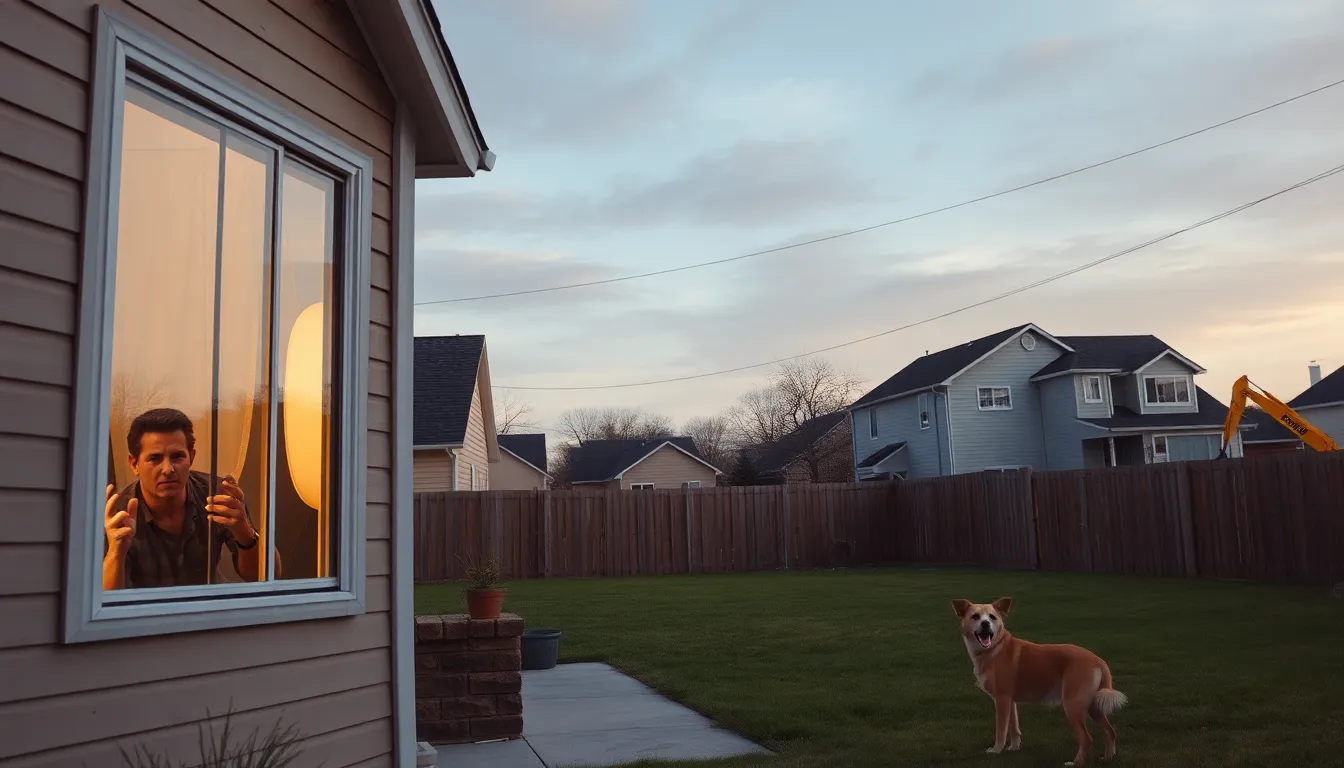Living in a noisy neighborhood can feel like being stuck in a never-ending concert—without the fun or the earplugs. From late-night parties to persistent barking dogs, noise can disrupt peace and sanity. But before one starts plotting revenge on the noisemakers, it’s crucial to understand noise complaint rights. Knowing these rights can empower anyone to take action without turning into the neighborhood Grinch.
Navigating the maze of noise regulations might seem daunting, but it doesn’t have to be. With the right information, one can effectively address disturbances while keeping things professional and, dare we say, a bit humorous. After all, who wouldn’t want to resolve a noise issue without losing their cool—or their sense of humor? Let’s dive into the world of noise complaints and discover how to reclaim that much-needed peace and quiet.
Table of Contents
ToggleUnderstanding Noise Complaints Rights
Understanding noise complaints rights is crucial for individuals experiencing disturbances. Knowledge empowers residents to take necessary actions when faced with disruptive noise.
Definition of Noise Complaints
Noise complaints refer to reports made by individuals regarding disturbances affecting their comfort and peace. These disturbances can originate from various sources, including loud music, barking pets, or construction activities. Local noise ordinances typically define acceptable sound levels and times when noise can occur. Shedding light on local laws assists individuals in determining whether a situation qualifies as a legitimate complaint.
Importance of Knowing Your Rights
Knowing noise complaint rights helps residents address disturbances effectively. Individuals can assert their rights and pursue resolution options when they understand local regulations. Awareness of specific laws allows for informed discussions with neighbors and authorities. Taking the initiative also fosters a more peaceful community. Many jurisdictions provide resources, such as mediation services or law enforcement contacts, to aid in resolving noise issues.
Common Sources of Noise Complaints

Noise complaints often stem from various sources that disrupt residents’ peace and comfort. Understanding these sources aids in addressing issues effectively.
Residential Noise
Residential noise significantly impacts homeowners and renters alike. Loud music from neighbors can create tension in a community. Additionally, barking dogs often disturb the quiet of early mornings and late nights. Late-night parties disturb the peace as well, leading to complaints from those trying to sleep. Construction activities during early or late hours may also violate noise ordinances, especially in residential areas. These disturbances commonly warrant noise complaints, as they directly affect residents’ quality of life.
Commercial Noise
Commercial noise sources frequently generate complaints in mixed-use neighborhoods. Loud machinery from construction sites can disrupt nearby residents throughout the day. Bars and restaurants contribute to noise through music and patrons, particularly during peak hours. Traffic from nearby businesses generates additional sound, affecting local residents’ tranquility. In some cases, delivery trucks operating early morning or late evening can create disturbances. Understanding these commercial noise sources helps residents identify when to file a complaint, ensuring local authorities are informed about violations.
Legal Framework for Noise Complaints
Understanding the legal framework for noise complaints involves recognizing the rules set by local governments and broader legal structures. This knowledge allows residents to effectively address disturbances.
Local Noise Ordinances
Local noise ordinances define acceptable noise levels and times within specific neighborhoods. Cities and counties often dictate these ordinances, covering various noise sources. During nighttime hours, many areas impose stricter regulations prohibiting loud activities. In some instances, local laws may even restrict the volume of music during designated quiet hours. Residents should familiarize themselves with their local laws to determine specific noise limits and applicable fines for violations. Utilizing this information, individuals can file complaints when noise exceeds these legal thresholds.
State and Federal Laws
State and federal laws add another layer of protection concerning noise complaints. Various state laws govern noise control, often granting local authorities the power to enforce ordinances. They may cover industrial noise or zoning regulations as well. Federal legislation, such as the Noise Control Act of 1972, establishes guidelines for managing excessive noise pollution from commercial activities. Recognizing these laws aids residents in understanding broader protections against disruptive sounds while navigating local complaints effectively. Complaints may escalate to state or federal authorities if local measures fail to address noise issues adequately.
Steps to File a Noise Complaint
Filing a noise complaint requires a systematic approach to ensure effective resolution. Residents can take specific steps to address disturbances professionally.
Documenting the Noise
Start by keeping a detailed record of the noise disturbances. Note the dates, times, and descriptions of the incidents, including noise sources and durations. Audio or video recordings can offer clear evidence, supporting claims about excessive disturbances. Gathering witness statements can also provide a stronger case, as multiple accounts enhance credibility. Create a timeline to identify patterns in the noise, making it easier to illustrate the frequency and extent of the issue. Accurate documentation serves as a vital tool when addressing complaints with authorities or neighbors.
Reporting to Authorities
Contacting local authorities is essential for formally addressing noise issues. Identify the appropriate department, such as the local police or noise control board, based on the nature of the disturbance. Provide all documented evidence while explaining the situation clearly and concisely. Residents can call, visit the office, or submit online forms in many jurisdictions. Follow up to ensure the issue receives attention. Local laws may dictate response times, so understanding these can help set expectations. Engaging authorities professionally often leads to more effective resolutions, promoting a peaceful neighborhood.
Resolving Noise Complaints
Addressing noise complaints involves various approaches, including mediation and potential legal action. Understanding available options empowers residents to reclaim their peace effectively.
Mediation Options
Mediation provides a constructive way to resolve disputes without escalating tensions. Engaging a neutral third party facilitates open discussions between neighbors, allowing them to express concerns and reach mutual agreements. Residents can find mediators through local community organizations or dispute resolution centers. This option often leads to faster resolutions, as parties can work together to establish noise limits or schedules that respect everyone’s needs. Such collaborative efforts create a friendly atmosphere, encouraging ongoing communication among neighbors.
Legal Action Considerations
Legal action can serve as a last resort for unresolved noise complaints. Courts handle cases where mediation fails or when significant disturbances threaten a person’s well-being. Residents must first ensure they understand local noise ordinances and gather evidence to support their claims. Documentation of incidents, including sound recordings and written accounts from witnesses, strengthens potential cases. Filing a lawsuit involves specific procedures, so consulting with legal professionals ensures that residents follow appropriate legal channels and understand possible outcomes. This approach may lead to enforcement actions or compensation if disturbances continue.
Navigating noise complaints can be daunting but understanding one’s rights makes it manageable. By knowing local ordinances and documenting disturbances, residents can take effective steps toward reclaiming their peace. Engaging in open communication with neighbors and local authorities fosters a sense of community and can lead to amicable resolutions.
When necessary, exploring mediation or legal options provides additional avenues for addressing persistent issues. Ultimately, being informed empowers individuals to create a more tranquil living environment and ensures that everyone can enjoy their homes without undue disruption.





